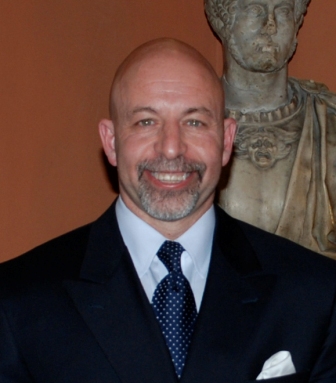 Prof. James Giordano, PhD, is Vice President for Academic Programs and Director of the Center for Neurotechnology Studies at the Potomac Institute for Policy Studies. In the latest post on his blog Neurosecurity, he writes about the ongoing debate over the application of neuroscience and neurotechnology in national security, intelligence and defense (NSID). Prof. Giordano notes that some in the neuroscientific community have called for their colleagues to disavow any involvement in NSID. But he argues that while ethical and moral probity must be maintained, avoidance is not the answer. Prof. Giordano writes, "Thus, I call for some – but certainly not all – neuroscientists and neuroethicists to be actively involved in the discussion and debate, as informed, experienced experts at those tables where guidelines and policies are made, to work proactively to provide lenses and voices to report what neuroscience can and cannot do, and to be participatory in the formulation of directives that shape and govern the ways that neuroS/T should – and should not – be utilized." Click here to read the post in full.
Prof. James Giordano, PhD, is Vice President for Academic Programs and Director of the Center for Neurotechnology Studies at the Potomac Institute for Policy Studies. In the latest post on his blog Neurosecurity, he writes about the ongoing debate over the application of neuroscience and neurotechnology in national security, intelligence and defense (NSID). Prof. Giordano notes that some in the neuroscientific community have called for their colleagues to disavow any involvement in NSID. But he argues that while ethical and moral probity must be maintained, avoidance is not the answer. Prof. Giordano writes, "Thus, I call for some – but certainly not all – neuroscientists and neuroethicists to be actively involved in the discussion and debate, as informed, experienced experts at those tables where guidelines and policies are made, to work proactively to provide lenses and voices to report what neuroscience can and cannot do, and to be participatory in the formulation of directives that shape and govern the ways that neuroS/T should – and should not – be utilized." Click here to read the post in full.
Past Events
Part 1 The Convergence of Crime and Terrorism
November 21 2013 The Potomac Institute for Policy Studies
11 7 2013 Part 1 - Panel - "Can Counterterrorism Strategies and Democracy Co-Exist?"
Part 1 - A critical element of counterterrorism strategy is the role of intelligence. What is the price for democratic concerns, including issues such as metadata, detention, interrogation, renditions, prosecutions, and punishment?
Can less liberty equal more security? What is the cost to internatio...
11 7 2013 Part 2 - Discussion - "Can Counterterrorism Strategies and Democracy Co-Exist?"
Part 2 - A critical element of counterterrorism strategy is the role of intelligence. What is the price for democratic concerns, including issues such as metadata, detention, interrogation, renditions, prosecutions, and punishment?
Can less liberty equal more security? What is the cost to internatio...
Oct 30 2013 Reassessing the WMD Challenge
Special Seminar
October 30, 2013
"Reassessing the WMD Challenges: The Next Phase?"
Place: The International Law Institute
International Cooperation in Combating Terrorism: An Updated U.S. Assessment
International Cooperation in Combating Terrorism: An Updated U.S. Assessment
Print
Email
International cooperation is a key strategy in combating terrorism. And yet, the NSA revelations and the controversy over the latest U.S. raids in Libya and Somalia, as well as escalated drone operations in Ye...






